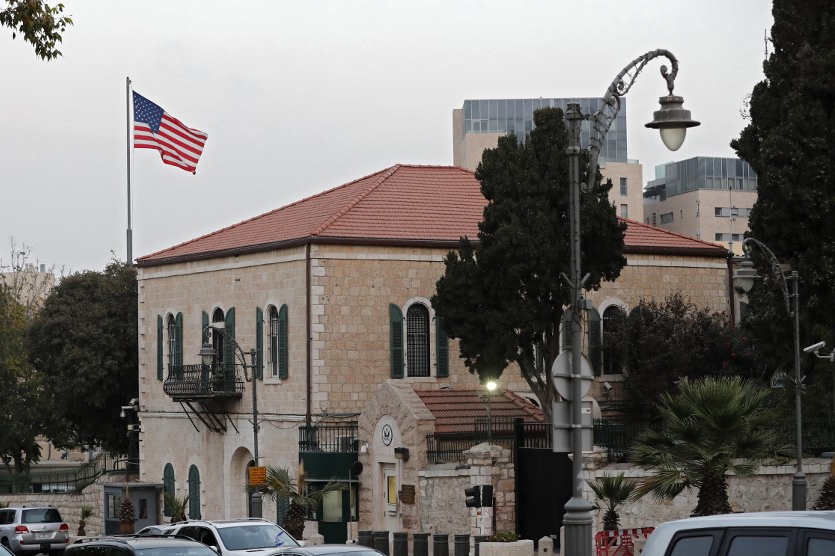'Bad idea': Israel's foreign minister slams US plan to reopen Palestinian consulate

Israel's foreign minister has slammed the Biden administration's plan to reopen the US consulate in Jerusalem to provide diplomatic outreach to Palestinians, warning it could destabilise Prime Minister Naftali Bennett's fragile coalition government.
"We think it's a bad idea," Foreign Minister Yair Lapid told a news conference on Wednesday when asked about the reopening. "Jerusalem is the sovereign capital of Israel and Israel alone, and therefore, we don't think it's a good idea.
"We know that the [Biden] administration has a different way of looking at this, but since it is happening in Israel, we are sure they are listening to us very carefully."
The previous administration of US President Donald Trump signalled support for Israel's claim to Jerusalem as its capital by moving the US embassy there from Tel Aviv and shuttering the consulate.
US President Joe Biden has pledged to restore US ties with the Palestinians and to back a two-state solution. In May, Secretary of State Antony Blinken announced the US would reopen the consulate, which has been closed since 2019.
The consulate historically served not only the hundreds of thousands of Palestinians who reside in Jerusalem, but also Palestinians from the West Bank and Gaza who required US consular services.
Lapid said reopening the consulate could unsettle Bennett's government, which ended Benjamin Netanyahu's long-running tenure as prime minister in June.
"We have an interesting and yet delicate structure of our government and we think this might destabilise this government, and I don't think the American administration wants this to happen," he said.
Two state solution not currently 'feasible'
Israeli officials and sources close to the Biden administration recently told Haaretz that Washington was forced to slow down its plans to reopen the consulate due to a separate Biden priority - helping Bennett's fragile coalition survive its first few months in office and prevent another election.
Last week, Bennett said he would not allow a Palestinian state to be created on his watch, in an interview ahead of his first face-to-face meeting with Biden.
Both the Israeli and Palestinian leadership have long claimed Jerusalem as their capital, an issue neither side has been willing to concede.
The idea of dividing the city, with the Palestinians controlling East Jerusalem as the capital of a future state while relinquishing West Jerusalem to Israel, has long been a leading solution.
Lapid told reporters on Wednesday that while he was a "devoted believer in the two-state solution… we'll have to admit the fact this is not feasible in the current situation".
Wasel Abu Youssef, a Palestine Liberation Organisation official, criticised Lapid's remarks and said Israel was simply trying to maintain the status quo and block any political solution to the Israeli-Palestinian conflict.
Middle East Eye delivers independent and unrivalled coverage and analysis of the Middle East, North Africa and beyond. To learn more about republishing this content and the associated fees, please fill out this form. More about MEE can be found here.





